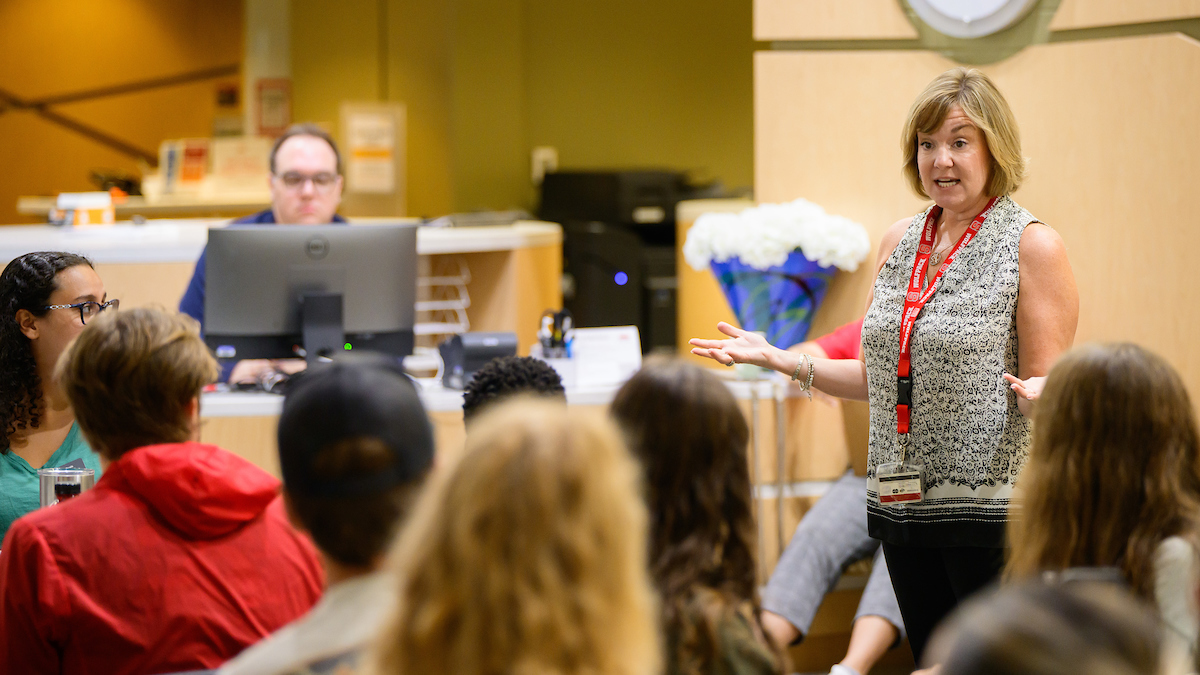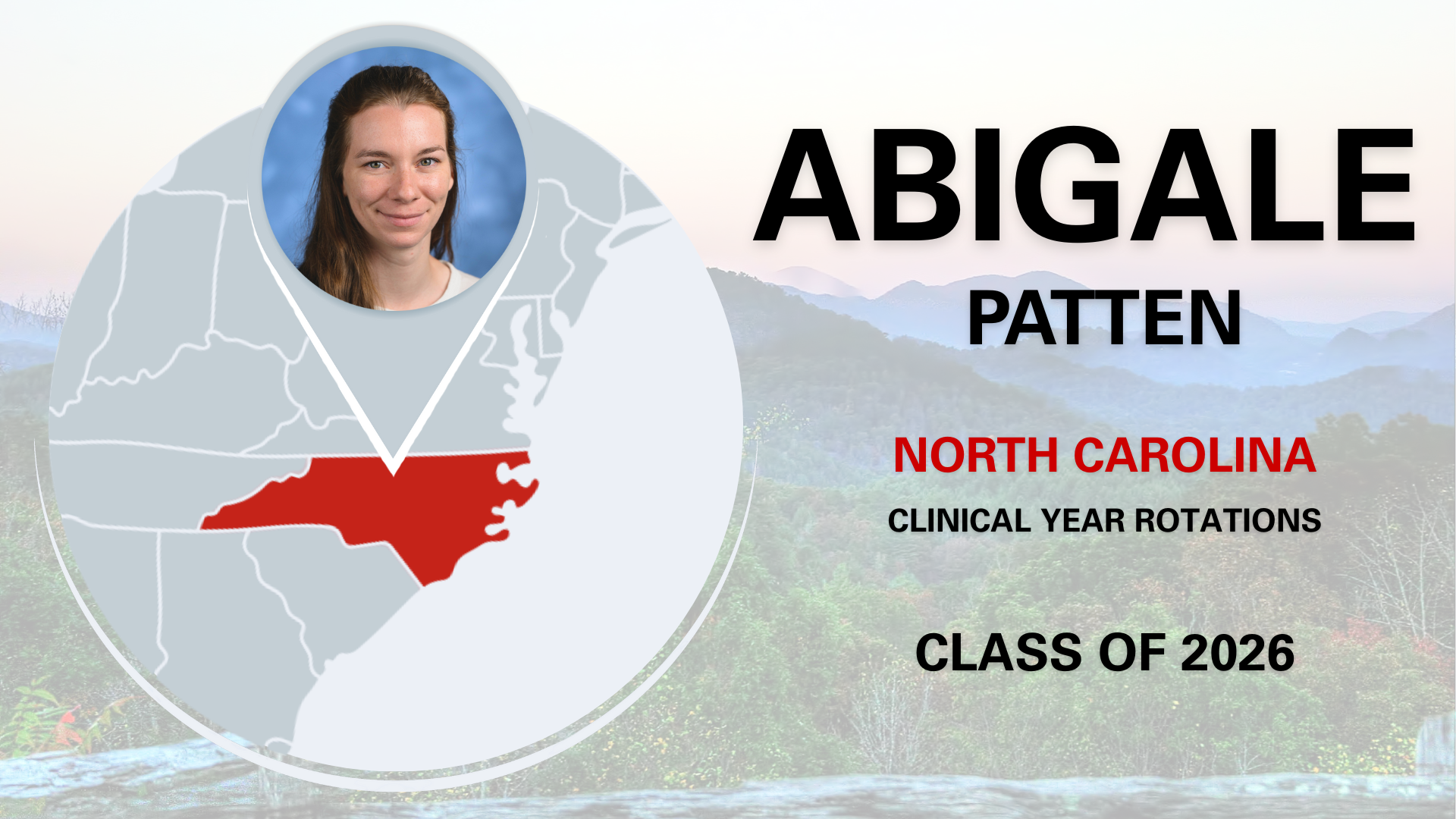Vets Squared: Honoring The Veterinary Student Veterans of the CVM
This Veterans Day, the NC State College of Veterinary Medicine recognizes DVM students with prior military service and those who will serve after graduation.
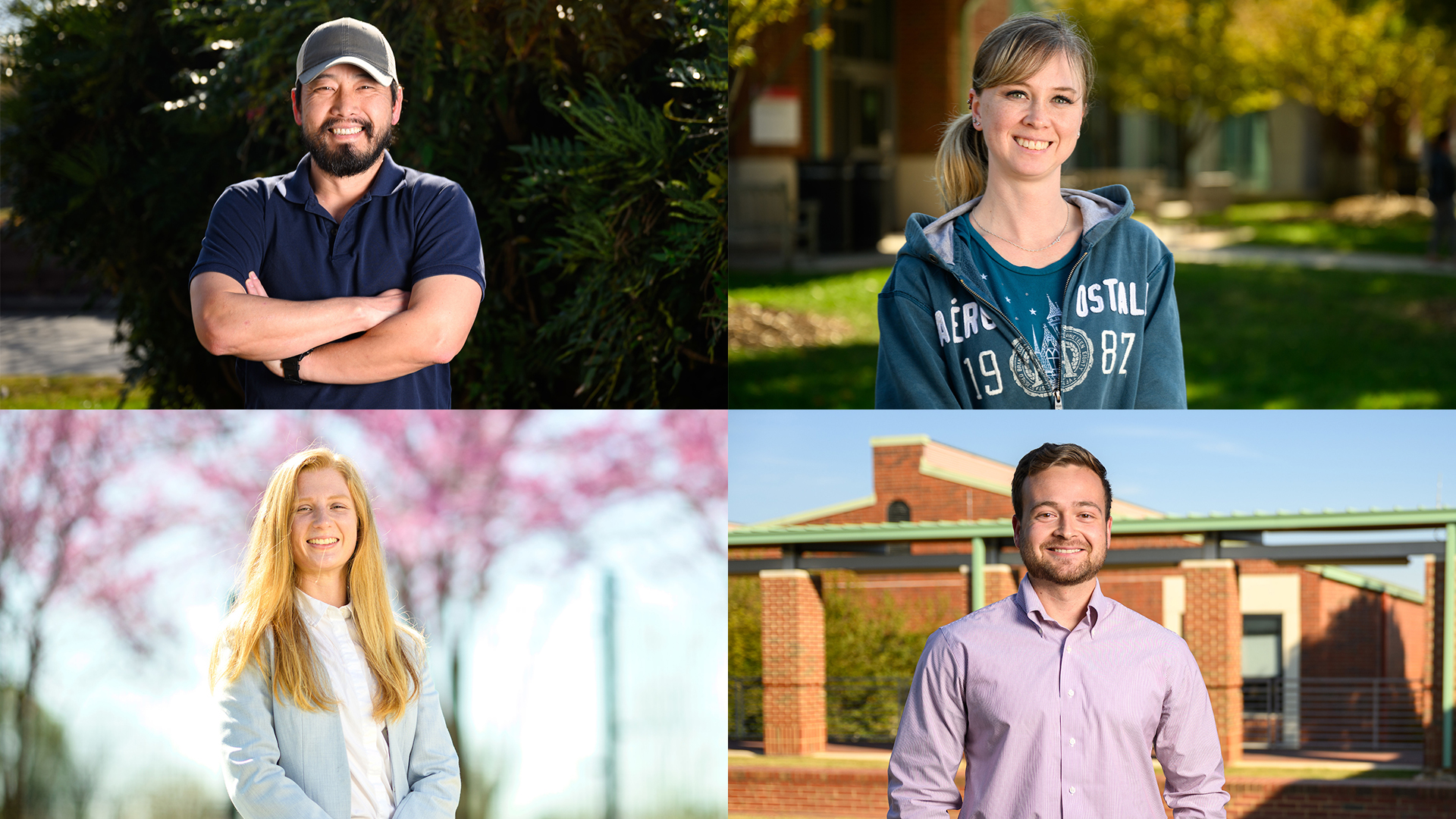
When first-year DVM student Seungshik Lee arrived at the NC State College of Veterinary Medicine for orientation this fall, the Army veteran was struck by the immediate sense of community he felt here and how similar it was to the camaraderie of the military.
“I value that shared emphasis on community and inclusion,” says Lee, who served 15 years of his 20-year Army career in Special Forces. “As a hard-working individual, you can go far, but you can go a greater distance as a team.”
Lee, 46, retired as a master sergeant two years ago and decided to pursue his interest in veterinary medicine on the recommendation of a military mentor. He says the discipline and resilience he gained from his service have helped him manage the challenges of returning to school for a rigorous program.
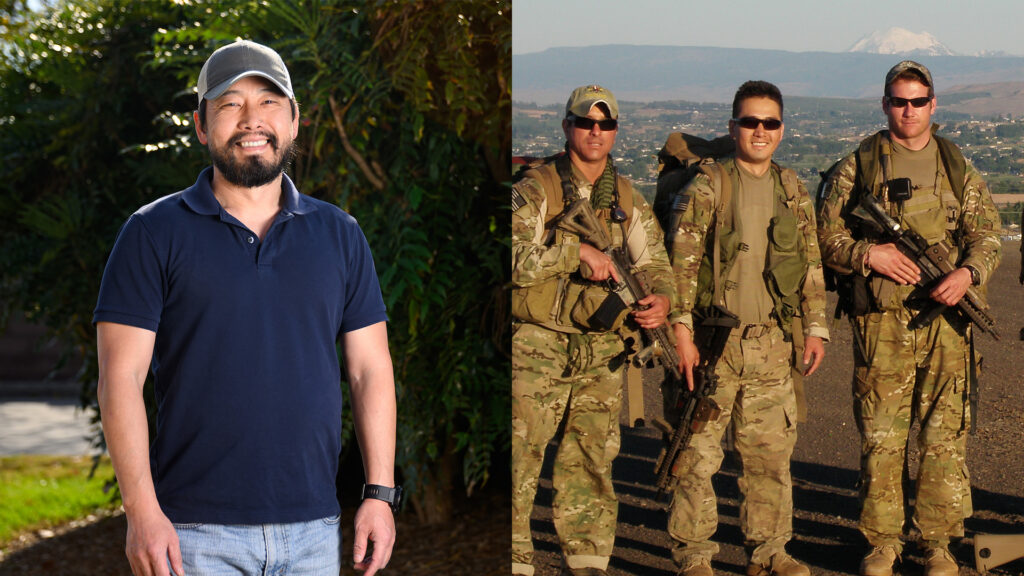
Lee is one of a handful of current College of Veterinary Medicine students who have previously served in the military or will commission into the armed forces after graduation through the Health Professions Scholarship Program, or HPSP.
Reflecting on their service ahead of Veterans Day, the future veterinarians within this select group say the military empowered them to study veterinary medicine, whether by funding their education, providing them the skills to succeed in a demanding field or both.
And though the classrooms of the CVM are very different from military training grounds, these student veterans draw parallels between these experiences that they say will make them stronger clinicians.
“The military prepares you for a long journey from the get-go, so you know that you’re going to have to put in the hard work to get where you want to be,” says Sarah Jama, a member of the class of 2027 who spent five years in the Coast Guard. “It’s the same way in the journey to and through vet school.”
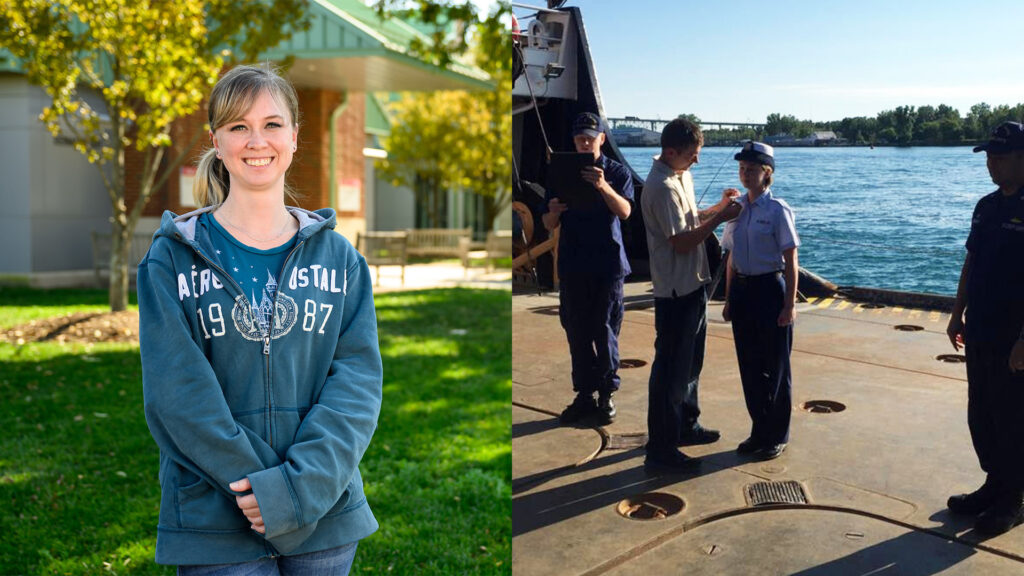
Ask these students what motivated them to serve, and their answers are similar to those on why they chose veterinary medicine: It was an unmistakable calling.
“A lot of my extended family comes from the military, so that is a bit of a pride point in our family,” says Chalise Brown, an Army HPSP scholar and a member of the class of 2024. “The HPSP lets me answer that call to serve while following my public health and research interests.”
Veterans attending the NC State College of Veterinary Medicine receive support through the campus-wide Jeffrey Wright Military and Veteran Services. The scope of military resources across NC State has earned it a top spot on lists of veteran-friendly universities in recent years.
Some CVM student veterans, like Lee, are using an education benefit known as the GI Bill to pay for their veterinary educations. The benefit pays tuition, fees and a stipend for active-duty veterans attending college.
According to CVM Registrar Brianne Meagher, nine students are using their own GI Bill benefits to pay for veterinary school this year and an additional 22 are using those of a family member.
Other students, like Brown, receive full-tuition scholarships and a stipend through the HPSP as long as they meet the program’s high standards and fulfill an obligation to serve active duty in the Army Veterinary Corps for at least three years after graduation.
The military also connects HPSP participants with externships during their studies that can help guide their veterinary careers. Brown has an upcoming training at the Joint Pathology Center in Maryland, where she will shadow anatomic pathology residents.
“The CVM has been really good about accommodating me for circumstances like that,” she says, noting the externship fulfills both college and Army requirements.
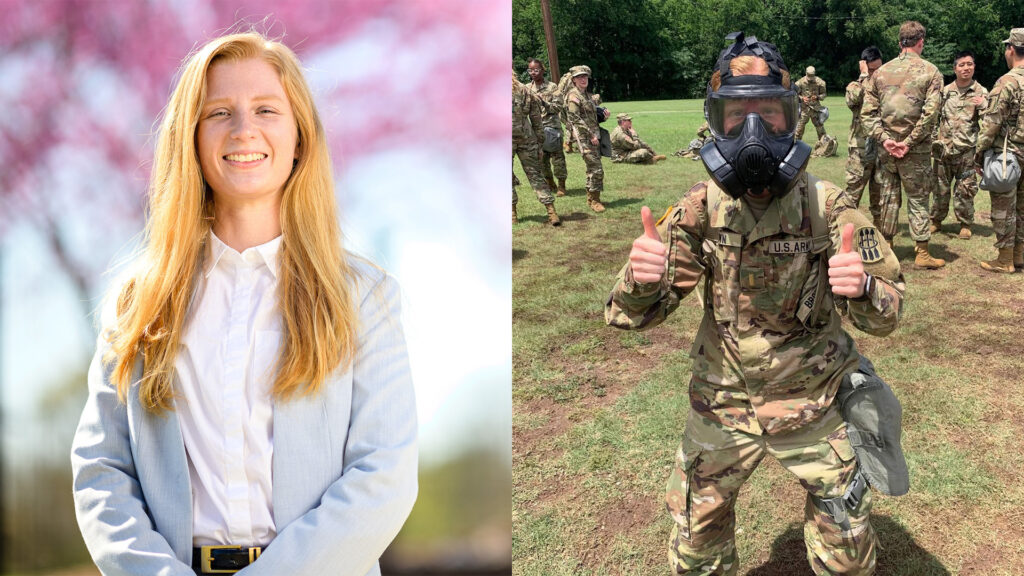
Called back to service
Tracy Hall, a third-year DVM student from Jacksonville, North Carolina, entered the College of Veterinary Medicine as an Army veteran and will rejoin active duty through the HPSP in a different role after graduation.
Hall, 26, enrolled in NC State’s ROTC program as an undergraduate and joined the Virginia Army National Guard after graduation. He was a medical treatment platoon leader supporting an infantry unit, placing him in charge of around 40 medics and 10 to 15 medical providers.
Within weeks of completing his officer training, his unit was deployed to Washington, D.C. for guard duty in the aftermath of the deadly riot at the Capitol on Jan. 6, 2021.
Hall found himself having to quickly step into his leadership role. The job became tougher when some of his soldiers contracted COVID and he oversaw the platoon’s treatment and quarantining across several hotels.
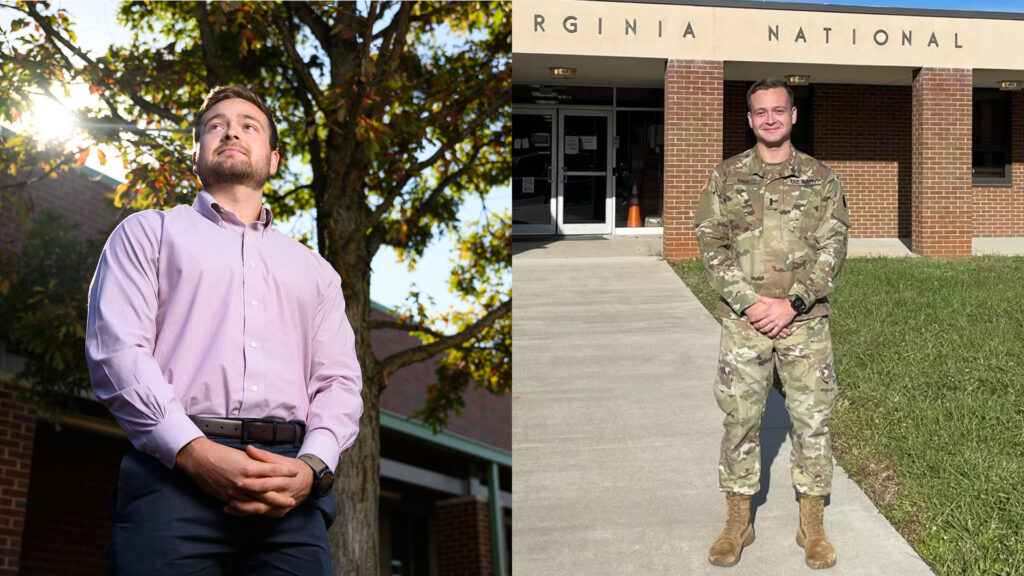
“I learned that when things go like that, you’ve just got to do your best to keep a level head,” Hall says. “That’s carried over to situations here at school, like during challenging surgeries. I did my best to learn from my company command, the other lieutenants and medical professionals, and relied on my soldiers.”
Hall’s Army experiences in human medicine have informed his training in veterinary medicine, from understanding the logistics and flow of a medical team to drawing from essential time-management skills.
Those Army teachings show up in his social life at the CVM, too.
Active-duty soldiers regularly take physical fitness tests. In maintaining his own workout routine, Hall has found himself recruiting fellow CVM students for gym sessions and leading the pack.
“I used to go to the gym by myself early in the morning, as soon as it opened, and now I have six people with me,” he says. “Second year, it was just me and another guy, and by the end of the second semester it was three or four of us. Now, they’re all going out for runs as a group.”
- Categories:

